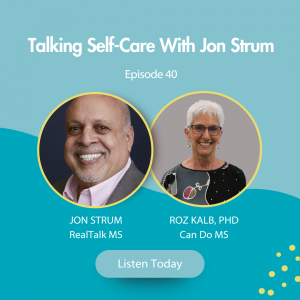My MS Story
Podcast: Play in new window | Download (Duration: 34:32 — 79.0MB) | Embed
Subscribe: Apple Podcasts | Spotify | iHeartRadio | Podchaser | RSS | More
My MS Story– Episode 183 – Transcript
In this episode we join our host Stephanie Buxhoeveden and special guest Ashley Ratcliff Lundy as we dive into the personal journeys of living with Multiple Sclerosis (MS) as we share unique stories of diagnosis, the emotional rollercoaster that follows, and how perspectives on life have shifted since that moment. From the first signs of MS to the life-changing diagnosis, our guest speaks about challenges, the feelings of uncertainty, fear, and hope, while hearing the lessons they’ve learned along the way. With honesty and resilience, we discuss how to redefine goals, priorities, and outlook on life, offering valuable advice to those newly diagnosed. Tune in for an inspiring conversation on adapting to change, embracing strength, and finding a renewed sense of purpose in the face of MS.
A special thank you to our generous sponsor Novartis.
- Poppy + Monarch, E-commerce business that supports the chronically ill community
- Jesus Year, The self-help memoir Ashley wrote about her MS diagnosis
- We Are ILL, The patient advocacy organization
Disclaimer: This podcast provides general educational information. Can Do MS does not endorse, promote, or recommend any service, or diet associated with the content of this program.

